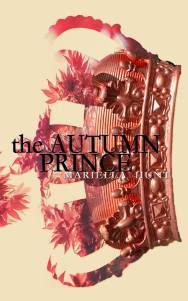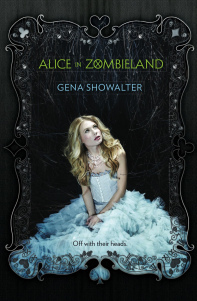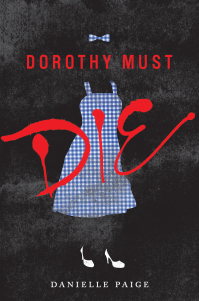Mariella Hunt's Blog, page 43
November 19, 2015
Guest Post: Maximize Your Writing Muses

The word “muse” may often call forth images of Renaissance Italy, tortured poets and gifted painters with women to whom all their works were dedicated. Next to God, love is the second greatest inspiration visible in classic art, and even more so evident in the modern pieces of today. However, where does the inspiration come from? Maybe you’ve never been in love. Maybe you have, but you don’t find that something strong enough to bring forth new story ideas and carry you through a project. The truth is that inspiration comes in the form of all sorts of different muses, and I’m going to share some of my own today. Perhaps these revelations will help you tap into your own.
Dreams
I can’t lucid dream, but I do have a knack for remembering things I’ve dreamt of in strong detail. In fact, my current project, Within, is the story that happens between two dreams I actually experienced a year apart from one another. The first was actually the end of the novel. I tried to write with it, starting at that point, but it didn’t stick. I didn’t know who my characters were, who they were up against or fighting for, or why they said the things that they did in the dream.
A year later I got my answer, and now I’m writing that story and think it’s some of my best work. Dreams, although they may be wild and incomprehensible at times, still come from within us. They can reveal hopes, fears and everything in between and even give us characters or settings our conscious brains would never slow down enough to tap into.
If you never remember your dreams, start keeping a notepad and pen by your bed at night. When you wake up from one, jot down everything you remember. It doesn’t have to be in fluid sentences. Just get the major parts and over time, you’ll begin to remember more and more when you wake.
Dreams are interwoven in my stories and play in an integral role in almost every novel I write, and the reason why they’re such great muses is that they’re simply you.
Music
I love music. I listen to it all the time. I work to it. I look up songs I hear on TV shows. I find the songs playing overhead in stores using an app on my phone. Music makes us feel understood. We feel empowered and comforted by the lyrics artists sing, often times capturing the emotions and thoughts we can’t verbalize or deal with on our own.
When you write, listen to music you love first. Envision your book like a movie or a show. Watch the scenes play out in your head. As a writing exercise, pick one song, put it on repeat and keep it going while you write a specific moment in your book to the music.
Learn to dissect the parts of a song and figure out which resonate with you the most and why. Does the quivering violin in a orchestral piece remind you of the fragility of a character? Do lyrics in an indie track capture exactly what your protagonist is going through? Make Spotify or iTunes playlists for each character in your book and the project itself. Don’t be afraid to mix it up and explore other songs in addition to what’s currently in your library.
By exploring your characters’ minds and developing their musical tastes, you’ll discover a lot about them that you will be able to insert into your writing.
Books
The last muse I’ll list today is probably at the top of all of your lists. Reading the writing of others really inspires me to get into my own. I know sometimes it can have the counter effect; you read something incredible and think, I could never write something anyone would love the way I love this. But that isn’t true. In fact, you can’t say that unless you actually write something to begin with. Of course no one will love what you’ve written if all you’ve got is a blank page and a load of self-apathy. Put that to good use! Start writing and keep reading.
Also, don’t feel pressured to read books just because they’re done by great writers. You may not like to read Keats or Hemingway. While I do think that everyone should indulge in these works due to the fact they’ve have had such a profound impact on society, I don’t think everyone is obligated to fall in love with the classics. Expose yourself. Sample chapters, essays and more. Those high school English textbooks actually have some pretty good stuff inside.
Flavorwire.com published a great article called “A College Curriculum on Your Bookshelf: 50 Books for 50 Classes” that is bound to have something that appeals to you and will get you thinking. Whether its science fiction, religious books, post-apocalyptic or YA thrillers, dabble in a bit of everything to culture yourself and bring a larger worldview to your own writing. I’ve had things as seemingly insignificant as tumblr text posts strike a chord and influence lines in my work. It isn’t so much about what you read so much as how you read it.
To Sum Things Up
Your muse might not be books. It may not be music. Whatever it is, it’s art in some form or another. If you get the most inspiration while walking through nature, you’re witnessing one of the greatest works of all by the greatest artist of all time. God made the world and everything in it. He made us capable of doing incredible things. Our minds and personalities are as diverse as the land itself, meaning we can draw inspiration individually from all sorts of different aspects of life and use them to inspire our writing.
These works may go on to be inspiration to others, either because they share the same interests or because you awoke their minds to an entirely different perspective. The best way to utilize your muse when writing is to create things that inspire you.
Jessica Wynn is a 22-year-old NYC expat living in the Eternal City. She’s currently studying web development and design while working on her third novel, Within, and frequently blogs about the process, offers writing advice and shares other musings about comics, music and life over on her site, Little Siberia.
Follow her on Twitter, and read her novel Within on Jukepop.
Filed under: Guests Tagged: guest post, Jessica Wynn, writing, writing tips








Tips on Overcoming Self-Doubt in Creativity

We waste so much potential every day when we listen to self-doubt.
This week I talked to other creatives about the things keeping them from progress in their work. By the end of the discussion, I realized we had one common enemy: Doubt.
It’s natural to fear nobody will like our work. Fear makes us question whether our projects are worth pursuing. We struggle with doubt throughout our lives, but I’ve noticed many people succumb to doubt instead of soldiering on…they quit altogether.
As a writer, I can best explain this with experiences in the writing process. However, this isn’t just a writer problem. Anyone with a dream will find this block on their road because we have been trained to think small and reasonably.
This feeds the doubt, making it a constant struggle, but not impossible to overcome! If you feel self-conscious about your work, it’s easy to think you’ve failed. This is not true! We all experience self-doubt, but what matters is how we deal with it.
One thing is certain: Giving up won’t solve your problems or satisfy you as a creative. It’ll only douse your dreams like water puts out fire; if you don’t make an effort to protect that flame, you’re letting doubt kill the fire!
What should you do when faced with doubt and lack of confidence? Here are some things that have worked for me in the years I’ve found I could write with confidence:
Get critique partners. The creative path isn’t meant to be traveled alone. We may prefer to write in silence, but without peers to cheer us on it becomes a chore. Find a few like-minded people who share your passion and talk to them when things get rough. If you have friends with you, the creative path becomes an adventure.
Know your limitations without limiting yourself. If you don’t think you’ll be able to write a book in two weeks, don’t expect yourself to. However, this doesn’t mean you shouldn’t aspire to achieve more than your average. Add five minutes to your daily writing time; read a few more pages before putting the book away. Don’t discourage yourself by climbing in a box or setting goals too high.
Take a break. Don’t know how your book is going to end? Set it aside for a couple of weeks and work on another project. The more thought you put into your project, the better it will be; sometimes it’s good for you to take time off. However, remember to resume your project! Leave a sticky note on the wall telling you when to get to work again.
Doubt and fear aren’t going anywhere, and they’re hard to ignore. Just remember you have a story to tell; no one else will say it like you can.
On the other side of fear there’s fulfillment; keep going and there’ll be a beautiful moment when you’ll hold a finished book in your hands. You can do it…you can tell that story and make this moment happen.
How do you overcome self-doubt? What do you tell yourself when it feels the Muse has abandoned you? I’d love to know how you face this challenge!
Filed under: Writing Tagged: creativity, doubt, writing, writing tips








November 17, 2015
Review: Delirium by Lauren Oliver

In Lena’s world, love is a disease—one she won’t have to worry about for long. Soon she’ll receive the treatment that’ll prevent her from being infected.
Delirium starts with a tone of urgency. It’s Lena’s desperation to be given the cure against love; we are given reasons to make it seem rational. Who wants to be so enchanted by someone else that they lose self-control and reason?
Then she meets Alex, and her viewpoint changes because she’s been infected and no longer wants the cure to love.
I think everyone has had moments where they wondered what could be so pleasant about needing someone else that much. This book is like a slap; it portrays a world where we don’t have a choice, and then we see.
A world where love is forbidden would be bleak, fearful, shallow, empty, stiff. This is the world of Delirium. We realize the beauty of love–not just romantic love, but love.
In moments of bitterness we decide we’d rather stay this way than lose ourselves for someone else, but we have the choice. At the end of the book, it sinks in: Sacrifices made for love make life worth living; love is a pain worth dying for, every form of it, whether it be love for family or for a significant other.
If we were all cured from ever feeling love, there would be no beauty. For beauty to come forth, a heart needs to be full and break often.
In Delirium, poetry is forbidden. When Lena first finds a book of poetry, she asks Alex what the word means. This scene, one of the most powerful, made me catch a breath. A world without love, poetry, beauty.
Delirium is a book that will make you question society, perhaps even make you braver. Also, it has a heart-wrenching cliffhanger! It will make you angry, anxious, it’ll make you scream at the book (or eReader) in your hands—and itch to keep reading.
Don’t take love for granted, and don’t take poetry for granted. Stop your busy day to read some! I’ll admit I’m the first to hesitate about grabbing a poetry book, but when you’ve contemplated a world devoid of it, you realize that poetry is the human spirit; poetry represents humanity, free, wild, without restraints.
Filed under: Book Reviews Tagged: 5 stars, book review, delirium, lauren oliver








November 15, 2015
The Autumn Prince Novel: Cover & Excerpt
How are your NaNo novels doing?
I am pleased to say that I have reached 32k and have an end in mind, which is more than I can say for other NaNo projects–indeed, more than I can say for any writing projects at all. Also, my friend Kristia made a beautiful cover that I could finally display on the website!

I thought I would share an unedited excerpt from the novel. You guys, I am extremely proud of how it’s turning out–proud that I could turn a short story into something more complex, expanding on beloved characters and adding detail to the environment. Thank you for all the support when it was still a serial; it was that support that encouraged me to make it a novel.
Here’s the excerpt. I can’t wait until you can read the whole thing!
Her eyelids fluttered, but she did not yet wake fully. Dreams pulled her back in; she was running in the leaves with a boy her age, his face glowing as he called her name, “Ginny! Ginny, you’ve got to be faster!”
Her eyelids fluttered again and she thought, I know who that is. “Caspar,” she breathed, not a question but a certainty. Dreams tugged at her once more.
She was chasing the little boy because he’d stolen her button doll. “You’ve got better toys!” he taunted her, but she screamed and threw rocks at him until a tall man in a black coat broke them up.
“Your Highness, Lady Genevieve, that’s no way to behave! You’re supposed to be friends.”
“He took my doll!” she screamed.
The man pried her button doll out of young Caspar’s hand and promptly returned it to her. “Your mother will have to talk to you about stealing things, Prince Caspar,” he’d said, to which the boy scowled.
In the waking world, she felt someone touch her hand. “Lady Kelsea,” said a familiar voice, soft as if he feared she would flee like a spooked horse.
But she wouldn’t. Kelsea finally broke away from those dreams, opening her eyes to blink away more tears. She was still on that armchair, and he sat on his knees before her, eyes shiny with grief.
It felt as though the ground were falling beneath her. She couldn’t question that the memories were real; that very button doll now sat on her bedside table at home.
Caspar knelt before her and waited, almost as if expecting her to strike him. Instead she said in a weak voice, almost a croak, “I knew you were familiar.”
Filed under: The Autumn Prince Tagged: cover, excerpt, NaNoWriMo, the autumn prince








November 12, 2015
Guest Post: An Author’s Thoughts on Labels in Literature

People often ask me why I became a writer, and the answer is actually quite simple: I’ve been in love with stories all my life.
And that love began with reading.
I became enthralled by stories at a very young age. Ballerina Bess and Dr. Suess were my first loves. I’d listen with rapt attention as my mom read each story to me at bedtime. Before long I began reading them for myself, and soon my interests developed from picture books to Nancy Drew to everything Lois Lowry and Margaret Peterson Haddix. But as I began to learn about literature in middle school, a switch seemed to flip.
Suddenly, I was all about the classics.
Jane Austen was gateway drug into this arena. I read Pride and Prejudice through with voracious fingers, bewitched by Elizabeth’s spirit and Darcy’s noble heart. A few other renowned novels followed, including The Great Gatsby, A Tale of Two Cities, and The Lord of the Rings.
But as I headed into high school, I began to despise the classics. In fact, it seemed like the more I read, the more I began to resent reading them. For a while I wondered what had gone wrong. Had I simply been lucky with the first handful I’d picked up? Were all those research papers for English class ruining the fun of reading? Was I allowing my classmates’ disdain for such books to cloud my own judgment?
I never did figure out the answer, but I did begin reading modern fiction again and it didn’t take very long for me to fall in love. But believe it or not, I actually felt a bit guilty every time I picked up The Hunger Games or Harry Potter. My English teachers had primed me to think of such works as lesser than their classic counterparts, and somewhere along the way I had clearly drunk the Kool-Aid.
This warped belief reared its ugly head like never before when I dreamed up the idea for my current work-in-progress, a medieval fantasy novel called The Dark Between.
I’d always been interested in writing, but I didn’t consider it a serious passion for many years because I knew I couldn’t write the exquisite prose demanded of the Great American Novel. And I figured that if I couldn’t write a classic, I couldn’t write at all.
But my passion for this new story idea was intense, so much so that I no longer cared if I wrote a novel that my English teachers would use for coasters. Regardless of its label, I was determined to bring this story to the world.
And that determination, oddly enough, changed my life forever. I willingly fell down the rabbit hole to the wonderful world of writing, and I’m now well on my way to having that very same fantasy idea published.
While I’ve faced many obstacles in my writing journey, I firmly believe that my warped understanding of critically-acclaimed fiction slowed me down though most. That may be a rather dramatic statement to make, but I often wonder what my life would have looked like if I had been encouraged to explore all avenues of fiction instead of just the one written largely by men long dead.
The truth of the matter is that every type of fiction requires a great deal of skill to write well, and that means that every type of fiction is deserving of respect, no matter its label. After all, every style contains works of varied success. Some novels are critically acclaimed while others are harshly criticized, and others still are overhyped or underappreciated. And this occurs across the board.
As both a reader and a writer, this tells me that I should never feel ashamed of preferring one type of novel over another. And you shouldn’t either.
I often tell my blog readers not to worry about choosing their novel’s genre or title before they’ve begun to write. Instead, I encourage them to focus on bravely exploring the beautiful story that dances just beneath their fingertips. That’s the only way they’ll ever write a novel worth reading.
Why? Because what I’ve painstakingly learned from years of experience is that labels don’t matter at the end of the day. Simple as that.
As an author, your capability to create a unique landscape in the writing industry is incredible. YOU hold the power to create the story you want to write. YOU hold the power to market that story to interested readers. And because of that, YOU hold the power to shape the face of the industry forever.
So if you want to write a feel-good romance that captivates wistful dreamers worldwide, don’t waste another minute. If you want to write a heart-wrenching epic that comments on humanity’s darkest predilections, pick up the pen today. And if you to write a novel that is so far beyond the scope of normal that you fear it will never sell a single copy, pour yourself a cup of coffee and go bravely unto the blank page.
Commercial or literary, upmarket or downright insane…these labels don’t matter in the end. What makes your novel unique is what makes it valuable to the world. And if you write with your soul open to the page, you will enthrall readers with your work. Guaranteed.
So don’t ever feel ashamed of the stories you long to tell, dear writer. The world needs them more than you can know.
 Kristen Kieffer is the creative-writing coach behind She’s Novel, where she helps writers craft novels that will endear readers, excite publishers, and launch their writing careers. Her latest creation, The Pre-Write Project, is an epic workbook designed to help writers prep their next novel in just five days flat. Kristen loves coffee, geeking out over Tolkien, and editing her upcoming medieval fantasy novel, The Dark Between. Want to learn more? Click here!
Kristen Kieffer is the creative-writing coach behind She’s Novel, where she helps writers craft novels that will endear readers, excite publishers, and launch their writing careers. Her latest creation, The Pre-Write Project, is an epic workbook designed to help writers prep their next novel in just five days flat. Kristen loves coffee, geeking out over Tolkien, and editing her upcoming medieval fantasy novel, The Dark Between. Want to learn more? Click here!
Filed under: Guests Tagged: guest post, Kristen Kieffer, labels, literature, reading, She's Novel








November 10, 2015
Review: Alice in Zombieland

I had never pictured Alice—the Alice we know and love—as a really tough girl. She was brave, certainly, but not tough. In Alice in Zombieland, Gena Showalter takes a beloved classic, making it intense and disturbing.
Alice Bell’s father lives in a state of paranoia. For years she’s tolerated his claim that monsters exist. He stays up all night, keeping watch for threats she has never seen. Her mother also knows, but prefers to hide the frightening details from her daughters.
The result is a life barely lived, one Alice has little patience for—until one fateful night on Alice’s birthday. She pushes and pushes until her parents agree to attend her sister’s recital. It’s a birthday gift that’ll end in disaster; on the way home, their car flips over near a cemetery and zombies kill her family.
Alice is the sole survivor. Alone in the world, she suddenly shares many of her father’s traits, including his paranoia. Scarred, she feels as though Alice died with the rest of her family, instead going by the name of Ali.
Set on revenge, Ali takes up her father’s obsession with finding zombies and killing them.
What I enjoyed most about Alice in Zombieland was how different Ali was from classic Alice. She’s a strong girl with dark haunts that live in her head, taunt her memory, keep her awake at night.
Ali Bell faces monsters much darker than Alice in the classic book. She fights with knives and swords, her heart loaded with anger and hatred. This Wonderland is dark and unsettling—and intriguing.
Alice in Zombieland is an exciting thriller. Ali’s a strong main character with drive and plenty of heartbreak. I recommend this book to anyone who wants an adventure with the right balance of horror and intrigue.
Filed under: Book Reviews Tagged: Alice in Zombieland, book review, books, Gena Showalter, literature, reading








November 6, 2015
3 Affordable Ways to Create a Dynamic Home Library
3 Affordable Ways to Create a Dynamic Home Library
By Miriam Bornstein
There’s nothing quite like reading a page-turning novel, wearing a pair of your coziest socks and sipping tea from your favorite mug on a Sunday afternoon. No matter how large or small your living space is, creating the perfect reading environment is attainable without having to pay a fortune.
Here are three ways to create a dynamic home library.
 Image Source: Matt White on Zillow Digs®
Image Source: Matt White on Zillow Digs®1) Customize Existing Items
If you want to get the most bang for your buck, use household items. If you’re bored with your current bookshelves, paint them a bold color or apply an ombre finish to the inside of your shelves. Polish the look by placing items on display, such as frames, funky artwork or memorabilia. Another crafty way to utilize vertical space is by repurposing an old ladder. Spray paint a metal ladder a jewel-tone color like sapphire or emerald green or stain a wooden ladder dark burgundy to add a colorful accent to your diverse book selection.
2) Create a Library Table and Seating
Access your book collection in a stylish and functional manner. Set aside a weekend to repurpose an old cable spool into a library table with minimal tools and materials. Head to your local home improvement store to pick up the all of your building necessities. Once you’ve created your table, top it with succulents for an eye-catching display without having to worry about water residue near your book collection. For an even cozier ambiance, add a reclining chair or love seat to encourage guests and family members to relax and stay a while.
3) Divide a Room to Add a Library
Short on space to incorporate a library? Break up living spaces by using a stand-alone shelf as a room divider. A wall barrier is especially useful for studio dwellers who desire separate places to sleep, socialize and maximize storage space. Place bins on the bottom shelves to store bookmarks, reading glasses and other household items. If you want extra privacy, hang a curtain against one side of the book cubby. Peel the curtains back during the day or close the curtains for a cozy book nook. Either way, you’ll be reading in style.
If your books are currently collecting dust or sitting in a cardboard box in your garage, now is the time to put them on display. You don’t need an elaborate study or pricey built-ins to create a novel-worthy reading environment. Get your fill of library design inspiration before tackling your space.
Filed under: Guests Tagged: decor, design, guest post, library








November 5, 2015
Guest Post: How to Stay Productive and Motivated While Writing
How to Stay Productive and Motivated While Writing by Briana Morgan
It feels so good to be a published author. I can’t put the feeling into words. If you had told me a year ago that I’d be where I am now, I might have laughed at you. Back then, I had a difficult time staying productive and motivated to put words on the page each and every day. That’s not to say I still don’t have that problem—I’ve just found some ways to move past it.
This month is National Novel Writing Month (NaNoWriMo), which means many people are setting out to write 50,000 words of a novel in 30 short days. Trust me when I say that it can be done, no matter how impossible it seems! Still, in order to cross the finish line, you’ll have to do battle with the monsters of procrastination and lack of motivation. Luckily, I’ve managed to slay both of those beasts, and today I want to share some of my tips with you.
Write or Die. Coincidentally, I’m writing this blog post using Dr. Wicked’s Write or Die program. If you’ve never heard of it before, Write or Die is a web-based program that nags you to keep writing. If you find yourself getting distracted or taking ages to meet daily word counts, this program may be indispensable. Since I started using it, I think I’ve seen a tenfold increase in overall writing productivity. Settings-wise, I recommend trying Normal Mode and Strict Grace Period, with a goal of 300 words every 15 minutes (something I borrowed from author K.M. Weiland). Try out a couple of different presets to discover what works best for you. Seriously, though, if it weren’t for Write or Die, I never would have gotten Blood and Water written.
Establish a compelling “why.” If you want to write a book or just write something every day, you need to have a reason why. It’s not enough to write because someone is pressuring you to or because you feel like you “should”—you have to find something personally rewarding about it, otherwise you’ll never feel motivated to get the work done. Regardless of your rationale, make sure you know exactly why you want to sit down with your writing each day.
Track your progress. I love progress bars, leveling up, and tracking my progress in general. For all my daily tasks, to-dos, and habits, I use Habitica. It’s a RPG-style productivity app that earns you experience points for doing real-world things like cleaning the house and meeting daily word counts. There have been many times I wanted to sit on my butt, and then realized how close I was to leveling up, so I went ahead and did some work. Trust me when I say that this app can change your life. Another great way to stay motivated is by tracking your writing stats. Scrivener will do this for you, but if you want more, check out NaNoWriMo’s word count feature (for the month of November), this nifty progress bar, or (my current favorite) MyWriteClub, which I learned about from Ava Jae. I love watching the progress bar move as I update my word count each day!
Find a writing buddy. Writing can be a lonely endeavor, but you don’t have to (and shouldn’t) go it alone. I talked about this idea in my most recent vlog. One of the best ways to ensure that you stay on track with your writing goals is to enlist the help of buddies or accountability partners. You can encourage each other, check in, and send updates on your progress. You’d be surprised how much of a difference this strategy makes! If you need a buddy, feel free to add me on NaNoWriMo or MyWriteClub—I’d love to help encourage you!
Treat yourself. If you haven’t seen the Parks and Recreation episode this notion comes from, watch it now. I’ll wait. Rewarding yourself for a job well done is absolutely vital to your progress as a writer. When I finally finished formatting and publishing Blood and Water, I went out and got my nails done. It made me feel fantastic—I never get my nails done—and helped motivate me to start working on my next project. Set up little rewards for daily, weekly, and monthly project goals. Choose things that you don’t do or buy for yourself every day so that you always have something to look forward to.
No matter how you choose to stay motivated and productive, it’s important to find something that works best for your unique process. Feel free to give these suggestions and try and let me know what you think! And if you have any other tips or advice for staying motivated while writing, please feel free to leave them in the comments below!
 Briana Morgan is YA and NA writer, editor, and blogger who loves dark, suspenseful reads, angst-ridden relationships, and complicated characters. Her interest in Jay Gatsby scares her friends and family. You can find her in way too many places online, eating too much popcorn, reading in the corner, or crying about long-dead literary heroes. Visit her website at www.brianamaemorgan.com.
Briana Morgan is YA and NA writer, editor, and blogger who loves dark, suspenseful reads, angst-ridden relationships, and complicated characters. Her interest in Jay Gatsby scares her friends and family. You can find her in way too many places online, eating too much popcorn, reading in the corner, or crying about long-dead literary heroes. Visit her website at www.brianamaemorgan.com.
Her debut novel Blood and Water is now available on Amazon and Barnes & Noble.
Filed under: Guests Tagged: briana morgan, guest post, NaNoWriMo, writing








November 4, 2015
life, lit, & coffee on Twitter
I’m experimenting with different ways to go about branding. At this point of my life I realize that literature and coffee play a great part of my routine. The books are me in print form (Allie from Dissonance accidentally wound up sounding like me!) and to write that literature I need the coffee. See what I did there?
If you’re following me on any social media at all, you’ve seen the drastic change I made from purple-tipped hair to epic all-purple. And it feels so me–this color must be the color of my soul. It’s the color for creative people. It’s more natural right now than the natural hair color I was born with.
I have created a Twitter profile for my blog to stand as its own entity, because there are things I’m planning that go so far beyond my own writing…I believe I exist to help other creatives embrace their stories and have the courage to tell them.
I’m going to feature some wonderful people to talk to you about their creativity and why it’s so important. I’m collaborating with the Academy of Media Arts, a different art from my own but still so freaking awesome.
My life is writing, but I want to introduce people who embrace their creativity in other ways–people who listen to their Muses.
To follow my blog on Twitter, click here. I’ll be using both my Twitter accounts, but this one is to connect with other bloggers and creatives because I really want to know how other artists follow their calling.
If you’re participating in NaNoWriMo like I am, I hope all is well! I’m currently scraping the daily word count goals, but the book will be written; The Autumn Prince will be a novel.
I look forward to sharing with you the epic stuff I have planned!
Filed under: Life Tagged: AMA, creativity, lifelitcoffee, NaNoWriMo, social media, twitter, writing








November 2, 2015
Review: Dorothy Must Die by Danielle Paige
In Dorothy Must Die, the heroes from your childhood are villains. It was a delicious feast for my imagination, each page rich with descriptions of a place that–despite its darkness and corruption–I really wanted to visit.
Amy Gumm stole my heart and loyalty from the beginning. Her mother is so self-centered, so broken, she doesn’t care about her daughter’s struggle at school; off to party, she leaves Amy alone during a tornado.
That tornado takes Amy away to a whole new world where she’s on her own–and in danger. But she can take it. She’s not scared at all. We see that her heart has become one of steel, making her the kind who’d survive in a place like Oz. She is gutsy enough to break the law and question people. It also makes her just the girl to face Dorothy and kill her.
But will she succeed?
Our childhood hero has become a monster who doesn’t hesitate to torture or kill. The Scarecrow, Lion, and Tin Woodman are just as bad; you wonder about their backstory, asking yourself what happened to change them so drastically.
Those questions are not answered here. Indeed, a great deal of Oz is left in a shroud of mystery. Just enough is revealed to make us feel like Ozians, craving the next book desperately.
We see Amy’s effort to reach Dorothy so she can kill her. She starts working as a servant in disguise at the palace; with every chapter, we dislike Dorothy more. But the servants are expected to adore her, brainwashed into singing her praises and blessing her name. According to them, nothing she does is wrong, and she only cares for their well-being.
I don’t think I’ve disliked a villain this much in a long time; the book was great at playing with my emotions, making me feel pity, disgust, and anxiety. I wanted to join in the fight and make things right again; I was rooting for Amy the whole time.
Dorothy Must Die is thrilling. Teaching us that up is down, it changes how we see right from wrong. It also advises us to trust no one–except me. Trust me when I urge you to read this clever, disturbing book. I had my eye on it for a long time before I finally gave in to read, and it was worth it.
Without a doubt, Dorothy Must Die is one of my favorite books I’ve read this year. Five stars to this one–and I can’t wait to get my hands on the next book!
Filed under: Book Reviews Tagged: 5 stars, book review, Danielle Paige, Dorothy Must Die, reading













